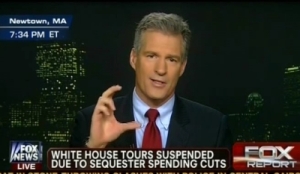
Well, that didn’t last long.
Late last month, supporters of a free press were celebrating when Attorney General Merrick Garland announced new guidelines aimed at protecting journalists. As Hadley Baker and Katherine Pompilio wrote at Lawfare, the rules — codifying a policy that Garland had put into effect early in his term — would prohibit “the use of compulsory legal process — the use of subpoenas, search warrants, court orders, and other investigatory practices — against ‘newsgathering’ individuals who possess and/or publish classified information.”
The rules were specifically aimed at protecting journalists in leak investigations involving classified information. But surely the guidelines would inform the Justice Department’s behavior in lesser matters, no? No. Today The Boston Globe reports that one of its editors, Joshua Miller, has been subpoenaed by federal prosecutors who are demanding that Miller testify on Dec. 5 in a case involving the Harvard admissions scandal. Miller broke that story in 2019.
Please support this free source of news and commentary by becoming a member of Media Nation for only $5 a month. Just click here.
Miller would most likely not have to testify in 49 states or the District of Columbia because they either have a shield law or, as is the case in Massachusetts, a ruling from their highest state court that journalists are protected from being dragged into court at the whim of prosecutors. The only places that do not have shield protections are the state of Wyoming and the federal government. The courts, though, are supposed to balance the interests of the criminal-justice system against the importance of a free press. As Mike Damiano writes in the Globe:
In a memorandum supporting a motion to quash the subpoena, Globe counsel Jonathan M. Albano cited extensive legal precedents protecting journalists from subpoenas and referred to “the widespread recognition that the First Amendment protects journalists from the needless disclosure of sources, investigative techniques, and both confidential and non-confidential work product.”
The judge in the case may rule against the prosecution, but it shouldn’t get even that far. This is an outrage against the First Amendment. If U.S. Attorney Rachael Rollins didn’t know about it, she needs to step in immediately and put an end to it. And if she did know, then she needs to undergo the “comprehensive training” that the Garland memo refers to as soon as possible.


